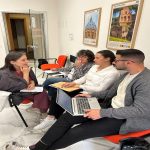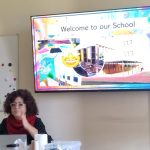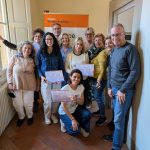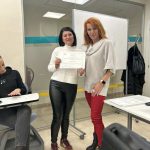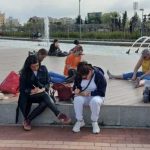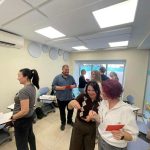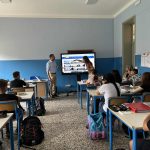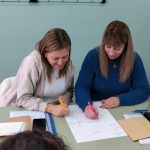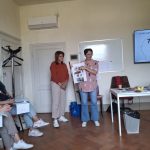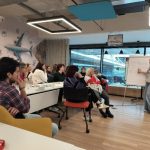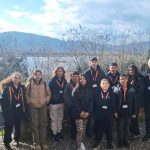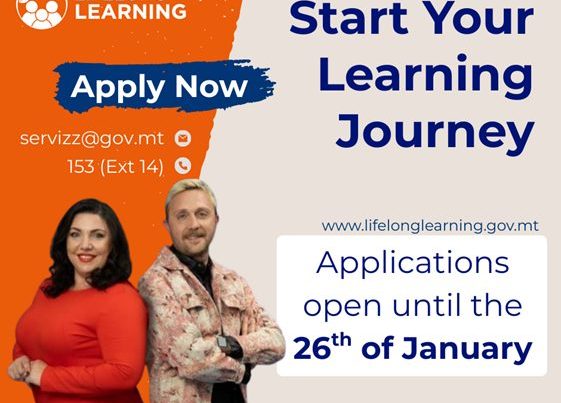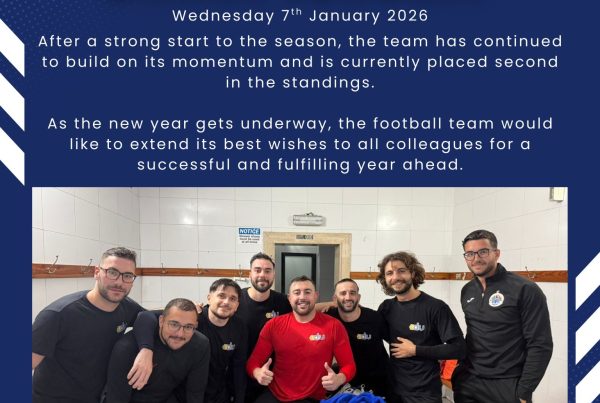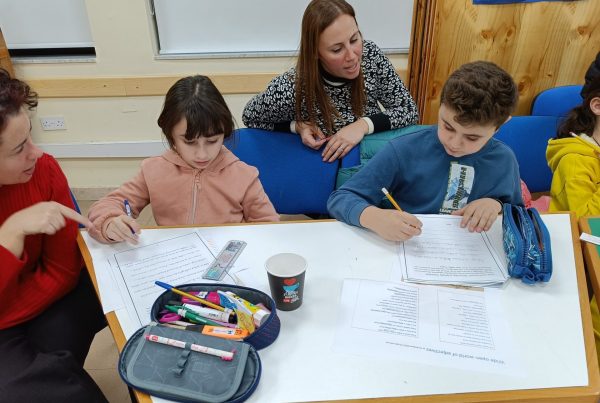St. Thomas More College, Carlo Diacono, Żejtun Middle & Secondary School:
This scholastic year, a total of 13 educators — ranging from Deputy Heads to Heads of Departments, Teachers, and Learning Support Educators (LSEs) — together with 10 students, participated in Erasmus+ mobilities held in different European countries. The overarching theme of these mobilities was diversity and inclusion, explored through a variety of training programmes, collaborations, and cultural exchanges.
One mobility took place in Florence, where a member of the Senior Leadership Team attended the course Inclusive Education for School Leaders. The programme focused on strengthening inclusive leadership practices, fostering staff wellbeing, and enhancing the emotional climate within schools. Key themes included Universal Design for Learning (UDL), leadership models, and strategies for building inclusive environments. Practical workshops such as the Sphere of Control, the PERMA model, and the jigsaw strategy offered valuable tools for reflection and professional growth.
Two Heads of Departments took part in the Erasmus+ course Supporting Diversity with Intercultural Education in the Classroom held in Istanbul. The programme brought together participants from Italy, Portugal, Germany, and Malta to exchange ideas, share classroom solutions, and explore strategies for fostering inclusion. Hands-on activities such as the Iceberg Analogy, the CDC model, and workshops on intercultural communication provided practical tools for addressing diversity in schools. Beyond the training sessions, cultural experiences — including a treasure hunt in Taksim Square and a Bosphorus cruise — added a special dimension, while also strengthening professional networks and friendships among participants.
A further mobility, Cultivating Diversity and Inclusion held in Rome engaged educators in discussions, interactive workshops, and reflective tasks exploring culture, communication, and stereotypes. The training balanced practical classroom tools — such as ICT applications for cultural learning — with deeper concepts like the Iceberg and Onion models of culture. Working alongside international colleagues expanded perspectives on inclusion and equipped educators with fresh strategies to reduce prejudice, foster empathy, and build more supportive learning environments.
Learning Support Educators (LSEs) from our school participated in an Erasmus+ mobility. They attended the course ‘We Are All Special: Inclusion and Support for Students with Special Needs In and Out of the Classroom’ in Italy, where they collaborated with educators from the Netherlands, Germany, Estonia, France, Portugal, Poland, and Italy. Together, participants exchanged methods, experiences, and best practices aimed at strengthening inclusion. This experience not only enhanced the skills of our LSEs but also highlighted their vital role in fostering equitable and supportive learning environments within our school.
Expanding the focus on accessibility, educators participated in an Erasmus+ mobility in Athens, focusing on ‘Designing Inclusive Environments to Support All Students.’ The training emphasised the principles of universal design and inclusive pedagogy, highlighting the importance of accessibility and equity within educational settings. Through collaboration with international colleagues, the educators explored strategies to create learning environments where every student can participate fully and thrive. The programme also encouraged reflection on how even small adjustments in teaching methods and classroom accessibility can significantly enhance inclusion. Sharing best practices with peers from across Europe further enriched the experience, inspiring innovative approaches to ensure that all students feel supported, valued, and empowered to succeed.
Attention also turned to mental health with the participation of two Guidance teachers in the Erasmus+ course Mental Health Awareness for Teachers and Students. During the course, educators explored the causes, risk factors, and signs of common mental health issues in students, as well as the links between childhood development, academic performance, and well-being. The course combined theory with practical tools, including counselling techniques and strategies to support students’ mental health. It also emphasised teacher well-being, offering guidance on self-care and stress management. The experience provided valuable insights and strategies to promote a healthier, more supportive learning environment for both students and educators.
Shadowing the Deputy Head of School provided an in-depth perspective on the multifaceted nature of educational leadership, revealing how operational management, strategic decision-making, and instructional oversight come together to shape a school’s success. The experience showcased the challenges of coordinating staff, managing student behaviour, and overseeing resources, while also highlighting the importance of data-driven planning and professional development in driving improvement. A classroom observation reinforced the critical connection between leadership and learning, demonstrating how thoughtful guidance and feedback can enhance teaching quality and ultimately support stronger student outcomes.
For the first time, ten Year 9 students travelled abroad on an Erasmus+ mobility, as the school has traditionally hosted international groups. These ten 13-year-old students spent a week in Crema and other cities in Lombardy. During the visit, the group attended lessons in three local middle schools, shared presentations about Malta, and took part in cultural activities, including role plays with Italian peers and outings to Bergamo, Milan, Lodi, and Cremona. The experience proved to be both educational and memorable, marking an important milestone for the school’s Erasmus journey and offering students an enriching opportunity they will treasure for years to come.
Together, these diverse mobilities reflect the school’s growing commitment to inclusion, diversity, and international collaboration. From leadership and mental health awareness to intercultural exchange and student participation, each experience enriched both educators and students, equipping them with fresh perspectives and practical strategies to foster inclusive, supportive, and empowering learning environments.

